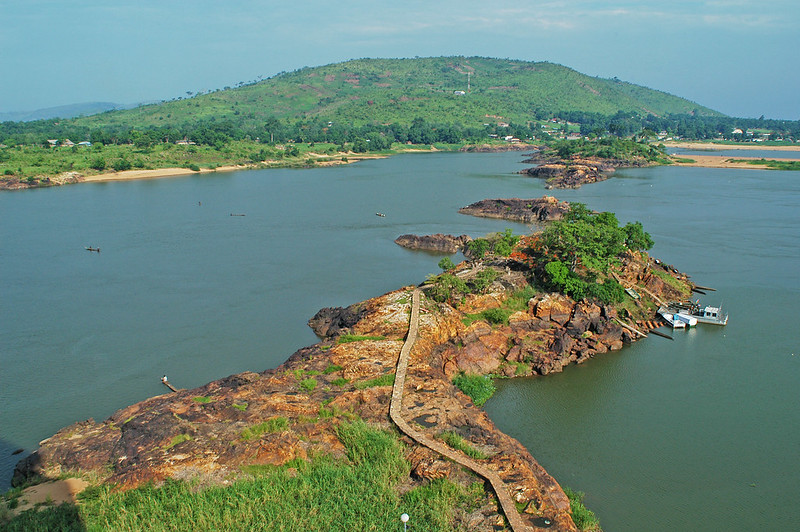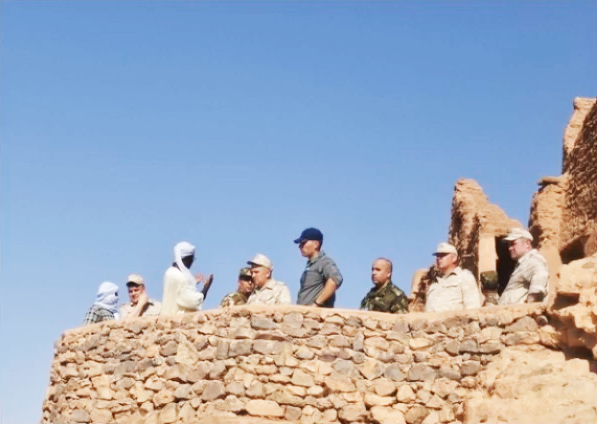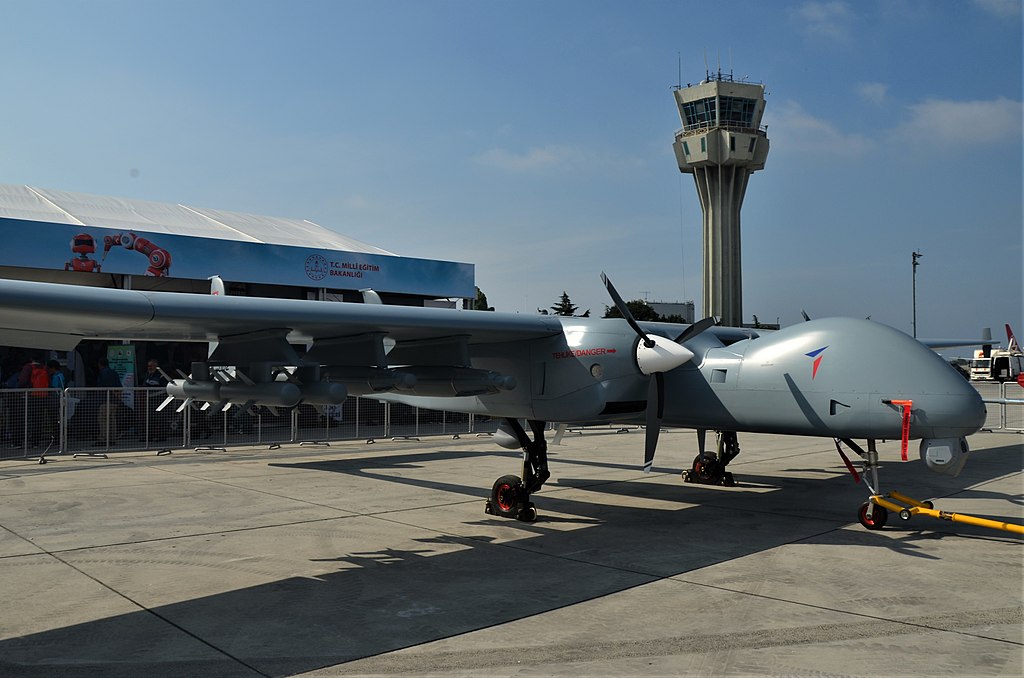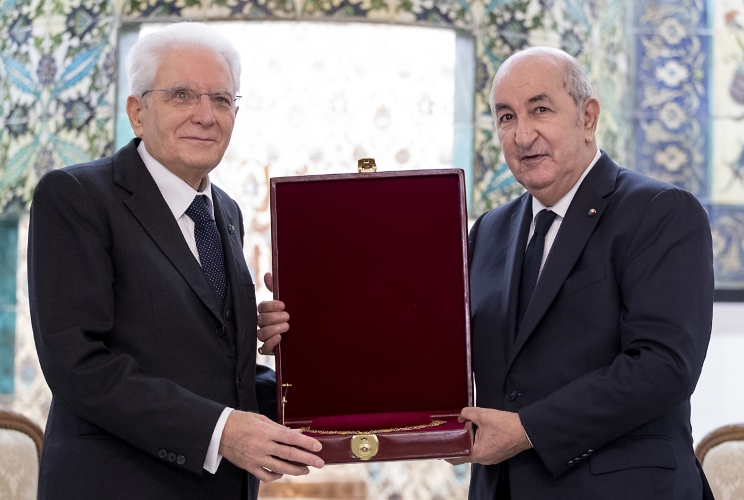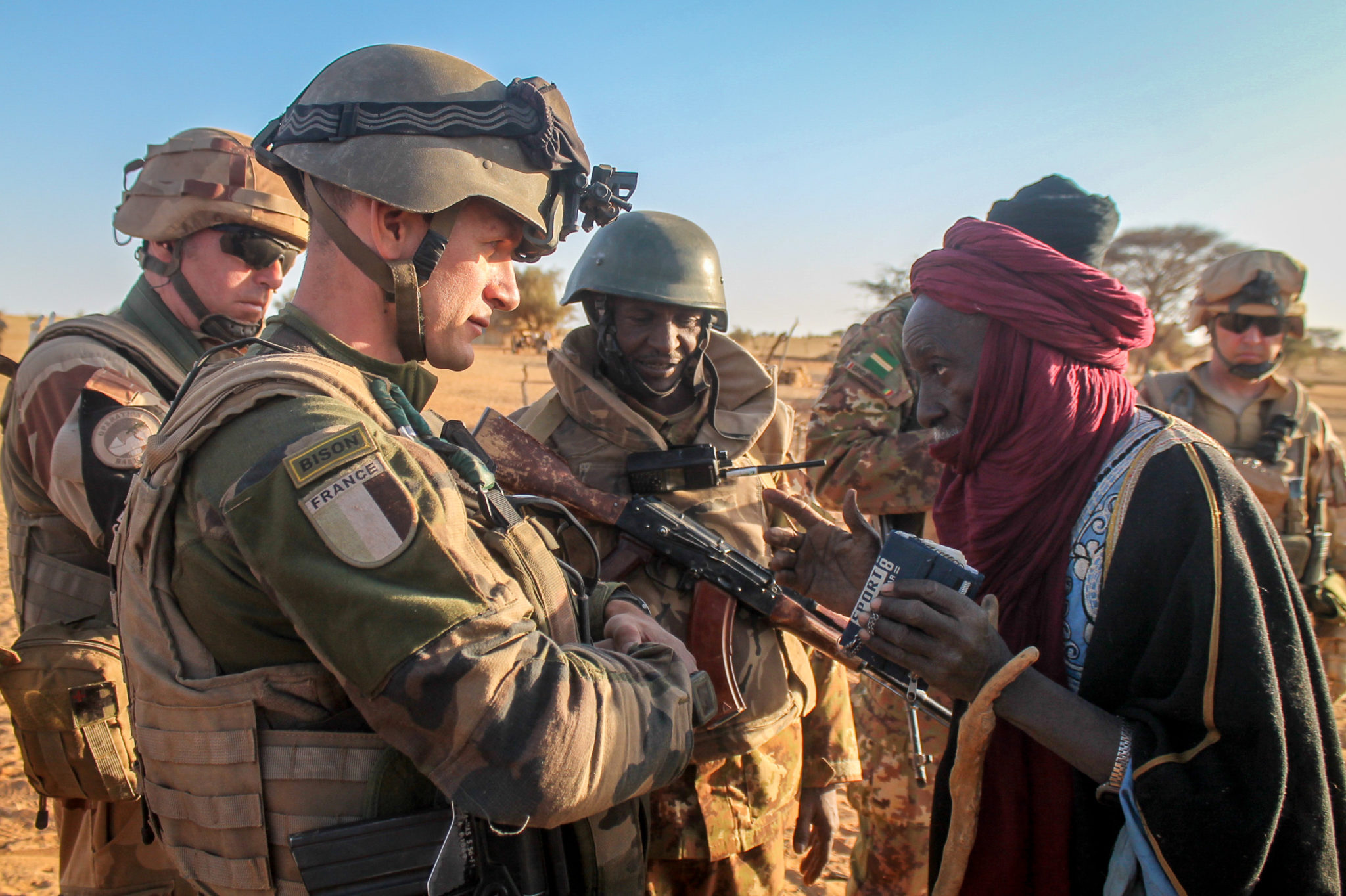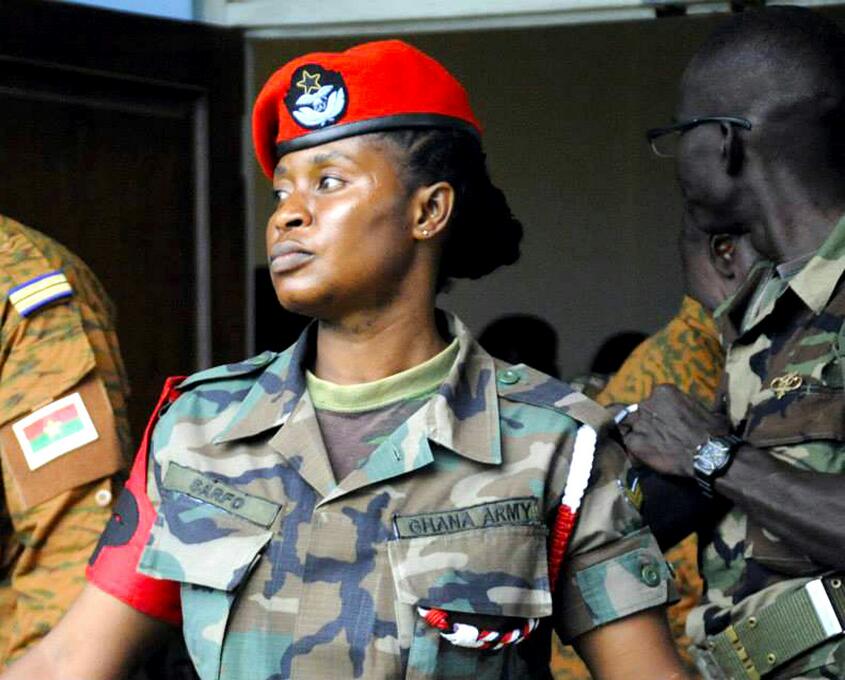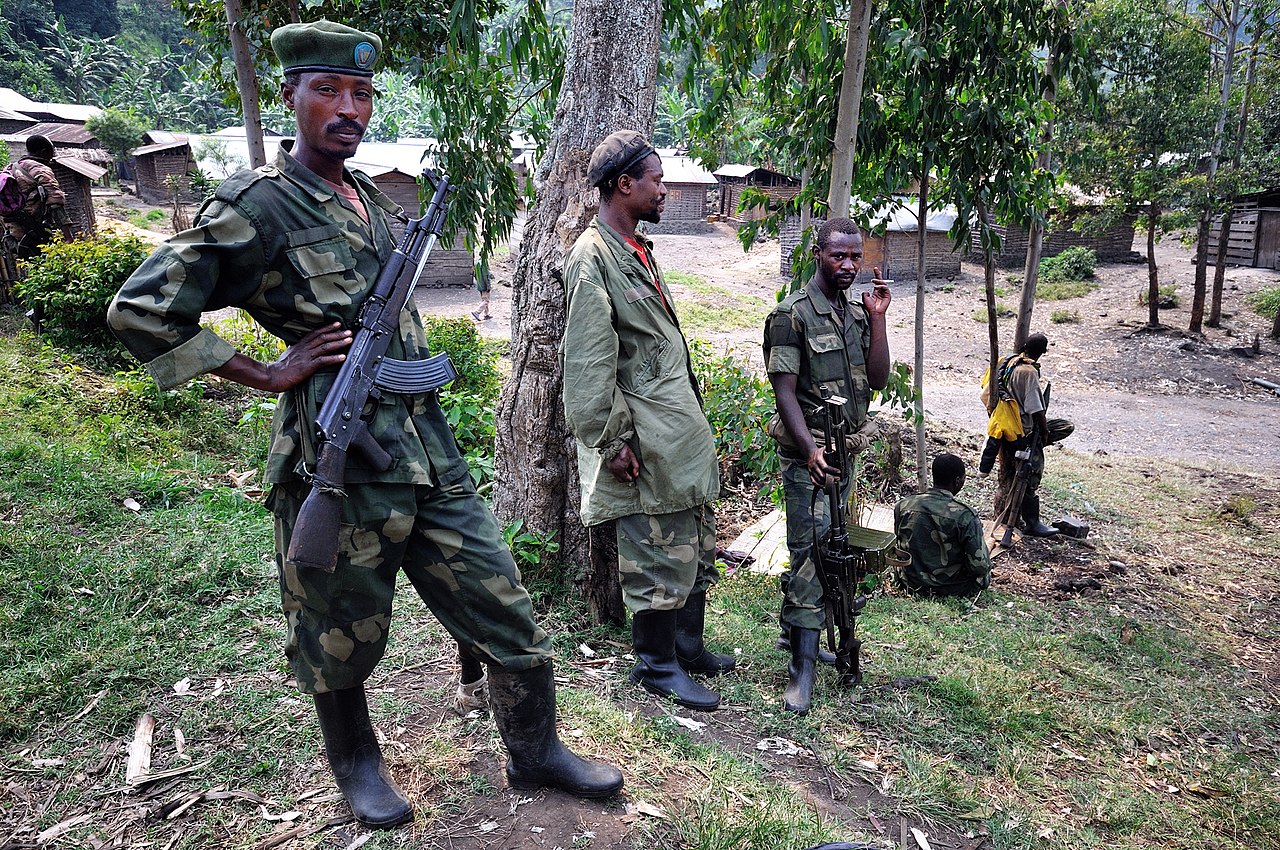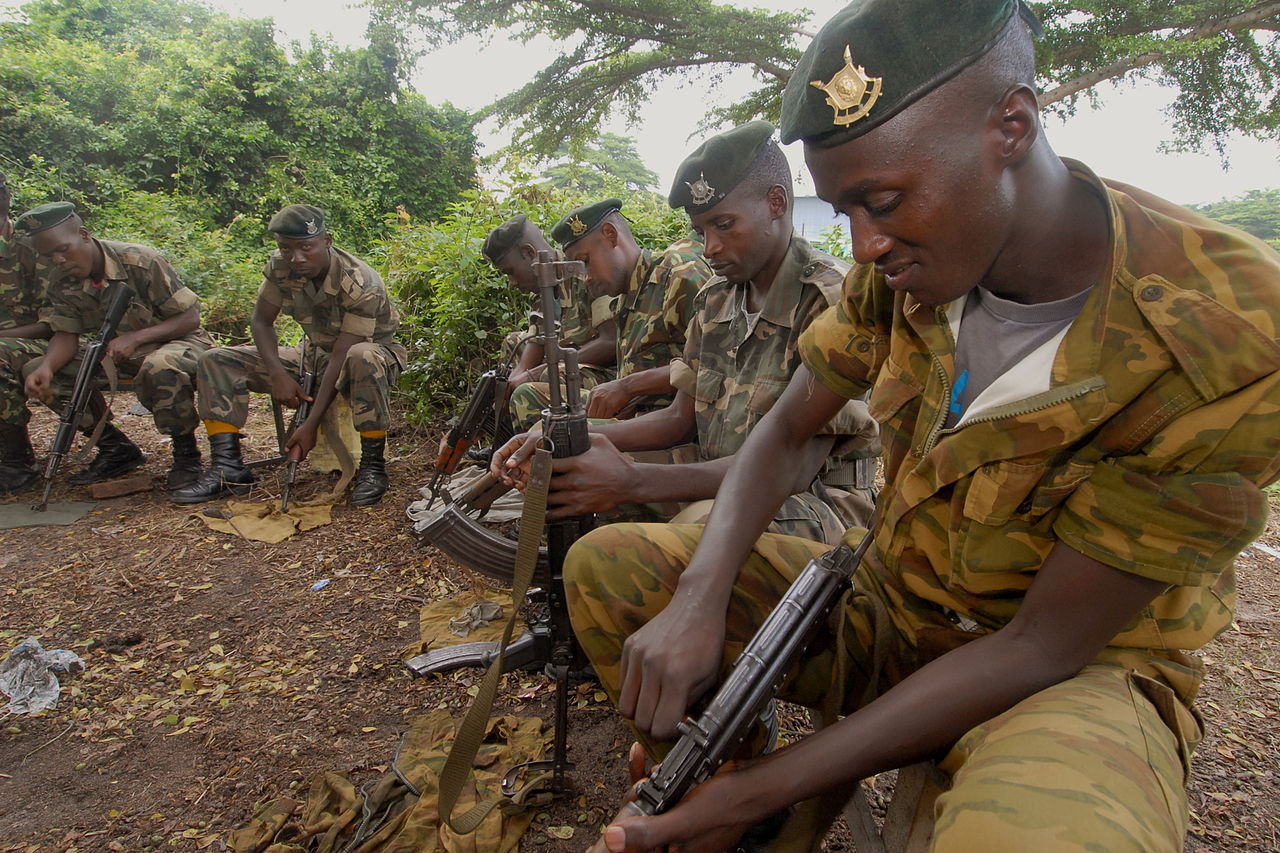2024-09-11 Iran To Cooperate With Russia On Gas Infrastructure and Trade (Michael Rubin)
2024-09-11 Iranian Commander Threatens Pursuit of Nuclear Weapon (Holly Dagres)
2024-09-11 Iran’s Army Chief Claims It Is Accelerating Israel’s Destruction (Holly Dagres)
2024-09-11 Iran Seeks To Cultivate Pakistani and Kurdish Support (Michael Rubin)
2024-06-26 Iran Navy Upgrades Bell-212 Helicopters (Michael Rubin)
2024-06-26 Iranian Self-Sufficiency in Aircraft Spare Parts May Benefit Sanctioned States (Michael Rubin)
2024-06-26 Iranian Navy Conducts Ballistic Missile Launches From Warship (Holly Dagres)
2024-06-26 Iran Vaunts Benefits of State-Owned Construction Company (Holly Dagres)
2024-06-26 Venezuela Seeks To Rectify Deteriorating Relations With Iran (Ryan Berg)
2024-04-23 Iran Conducts Joint Exercises To Bolster Air Force (Michael Rubin)
2024-04-23 Iranians Using Black Market VPNs To Bypass Restrictions (Michael Rubin)
2024-04-23 Iran Warns United States Against Attacking Ships in Red Sea (Holly Dagres)
2024-04-15 Spotlight on Vatanpour, Iran’s “Most Active” Airbase (Michael Rubin)
2024-04-15 Iran Hints It Will Supply Air Defense Weaponry to Palestinians (Michael Rubin)
2024-04-15 Iran Rationalizes Russia’s Pro-Arab Position on Disputed Islands (Michael Rubin)
2024-03-01 Iran’s Revolutionary Guard Seeks Dominant Role in Maritime Development (Michael Rubin)
2024-03-01 Iran’s Supreme Leader Announces Maritime Development Strategy (Michael Rubin)
2024-03-01 Iran Seeks To Assert Global Leadership in Determining International Cyber Policy (Michael Rubin)
2024-03-01 Belarus and Iran Form Alliance Against the West (Paris Gordon)
2024-01-03 Iran Announces Integration Of Artificial Intelligence Into Drone Fleet (Michael Rubin)
2024-01-03 Iran Equips Drones With Heat-Seeking Missiles (Michael Rubin)
2024-01-03 Iran Demands Disarmament Of Kurdish Dissidents In Iraq (Michael Rubin)
2023-11-08 Iran Promoting Medical Tourism To Generate Hard Currency (Michael Rubin)
2023-11-08 Iran’s Supreme Leader Accuses West of Ukraine War Conspiracy (Michael Rubin)
2023-10-03 Iran Claims Development of Cruise Missiles Guided by Artificial Intelligence (Michael Rubin)
2023-10-03 Requirements for Desirable Iranian Oil Ministry Jobs Revealed (Michael Rubin)
2023-10-03 Iran’s Supreme Leader Warns of Declining Fervor of New Generation (Michael Rubin)
2023-08-25 Iran Claims New Flight Simulator Will Enhance National Power (Michael Rubin)
2023-08-25 Iran’s Simorgh Transport Plane Makes Maiden Flight (Michael Rubin)
2023-08-25 Iran Indicates Plans To Commercialize Nuclear Technology, Sell Heavy Water (Michael Rubin)
2023-08-25 Iran’s Persistent and Growing Influence in Latin America (Ryan Berg)
2023-06-01 Iran Unveils New Thermobaric Warhead (Michael Rubin)
2023-06-01 Iran Opens New Helicopter, Drone Base in Southeastern Provincial Capital (Michael Rubin)
2023-06-01 Iran Ready To Help Syria Rebuild Its Defense Infrastructure (Michael Rubin)
2023-05-01 Iran Installs New Precision Missiles on Army Helicopters (Michael Rubin)
2023-05-01 Iran Seeks To Reestablish Embassy and Consulate in Saudi Arabia Before Hajj (Michael Rubin)
2023-05-01 Iran Considers Rapprochement With Pakistan (Michael Rubin)
2023-04-01 Iran Unveils Updated Yasin Training Jet With Possible Close Combat Applications (Michael Rubin)
2023-04-01 Iran’s Increased Defense Budget Leading to More Arms Exports (Michael Rubin)
2023-04-01 Iran Capitalizing on Post-Earthquake Conditions To Deepen Influence in Syria (Lucas Winter)
2023-03-01 Iran Praises Revolutionary Guards’ Proxy Afghan Brigade (Michael Rubin)
2023-03-01 Iran Profiles the Female Police Seeking To Quell the Women’s Protests (Michael Rubin)
2023-02-01 Iran Moves Sea-Borne Drone Fleet Closer to Reality (Michael Rubin)
2023-02-01 Iranian General Reiterates Goal To Expel United States From Region (Michael Rubin)
2023-02-01 Iran Fires Indigenous Torpedoes From Submarines for First Time (Michael Rubin)
2023-01-01 Iran Asks Tajikistan Not To Use Iranian Drones in Dispute With Kyrgyzstan (Michael Rubin)
2023-01-01 Iran Claim of Hypersonic Missile Capability Probably Exaggerated (Michael Rubin)
2022-11-01 Iran Vaunts Persian Language as Marker of National Identity Despite Country’s Ethnic Diversity (Michael Rubin)
2022-11-01 Iran’s Proposal To Build Railroads and Housing in Syria Could Enrich IRGC (Michael Rubin)
2022-11-01 Iran Lauds Air Defense, Claims Sepehr Radar Will Soon Be Operational (Michael Rubin)
2022-10-01 Iran Wants Sukhoi-35 Fighters From Russia (Michael Rubin)
2022-10-01 Iran Intercepts Crystal Meth Shipment From Afghanistan (Michael Rubin)
2022-09-01 Iran Reportedly Using New Carrier, Submarines To Expand Reach of Drones (Michael Rubin)
2022-09-01 Iran Unveils Stealth Speedboats (Michael Rubin)
2022-09-01 Iran’s Flawed Statistics and Growing Drug Addiction (Michael Rubin)
2022-08-01 Iranian F-14 Crash Highlights Iran’s Need for New Fighter Contract (Michael Rubin)
2022-08-01 Iranian Trade With China Is Up, but So Is Political Risk (Michael Rubin)
2022-08-01 Iran’s Revolutionary Guards To Expand Drug Treatment Center (Michael Rubin)
2022-08-01 Iran Believes Turkey’s Rapprochement With Israel and Saudi Arabia Is a Threat (Ihsan Gunduz)
2022-07-01 Iran Unveils New Drone-Fired Cruise Missile (Michael Rubin)
2022-07-01 Iran Opens New Drone Plant in Tajikistan (Michael Rubin)
2022-07-01 Iran Warns UAE Against Allowing Israel in the Persian Gulf (Michael Rubin)
2022-06-01 Khamenei Speaks on Necessity of Palestinian “Resistance” (Michael Rubin)
2022-06-01 Iran Initiates and Defends New Bread Subsidies Amid Deteriorating Economy (Michael Rubin)
2022-06-01 Iran Seeks To Counter Misinformation Circulating on Social Media (Michael Rubin)
2022-05-01 Iran Digs into Central Syria, Filling Vacuum Left by Russia (Lucas Winter)
2022-05-01 Iran Tries To Justify Abstention in UN Vote Condemning Russian Invasion of Ukraine (Michael Rubin)
2022-05-01 Iranian Navy Joins Indian Naval Exercises (Michael Rubin)
2022-05-01 Iran’s New Damavand Destroyer Set To Join Navy (Michael Rubin)
2022-04-01 Iran: Emphasizing Religiosity in Regular Army Promotions (Michael Rubin)
2022-04-01 Iran Uses Online War Games To Teach Younger Generation of Officers (Michael Rubin)
2022-04-01 Iran’s Supreme Leader Condemns Alleged Corruption of the West (Michael Rubin)
2022-04-01 Iran Repositions Its Proxies in Syria as Russia Turns Focus to Ukraine (Lucas Winter)
2022-03-01 Iranian Authorities Arrest Alleged Deputy Leader of Royalist Terrorist Group (Michael Rubin)
2022-03-01 Iran’s Prosecution of Arab Separatist Highlights Supposed Saudi Ties (Michael Rubin)
2022-03-01 Russia and China To Help Iran Build New Airports (Michael Rubin)
2022-02-01 Iran and Syria Discuss Transportation Cooperation (Michael Rubin)
2022-02-01 Iran’s Purported Counter-Hijacking Record (Michael Rubin)
2022-02-01 Iran Busts Weapons and Ammunition Smuggling Ring (Michael Rubin)
2022-01-01 Iran-Pakistan Bolstering Naval Cooperation (Michael Rubin)
2022-01-01 Iran Agrees To Gas Swap with Azerbaijan and Turkmenistan (Michael Rubin)
2022-01-01 Iran and Syria Seek To Jumpstart Economic Ties (Michael Rubin)
2021-04-01 IRAN Unveils New Baman Radar System (Michael Rubin)
2020-10-01 Iran Stockpiling Supplies through Chahbahar (Michael Rubin)
2020-09-01 More Iran in Venezuela (Geoff Demarest)
2020-09-01 Iran Increases Range of Smart Bombs (Michael Rubin)
2020-09-01 Iran: Passive Defense Organization and Basij Sign Memorandum of Understanding (Michael Rubin)
2020-09-01 Iran: Khamenei Speaks on Sanctions, Enmity toward America, and Nuclear Power (Michael Rubin)
2020-08-01 Iran: Khamenei Speaks on Corruption (Michael Rubin)
2020-08-01 Iran: What’s Behind the Government’s Secrecy on Handing Over Kish Island to Chinese? (Michael Rubin)
2020-08-01 Iran Eager to Enter the Global Market as a Military Equipment Exporter (Jerrilee Plude)
2020-08-01 China and Iran Announce $400 Billion Trade Deal (Peter Wood)
2020-07-01 Russian Arms Sales to Iran? (Ray Finch)
2020-07-01 An Afghan Perspective: A New Phase in Afghanistan-Iran Relations (Michael Rubin)
2020-07-01 More Iran in Venezuela (Geoff Demarest)
2020-07-01 The Three Main Missions of the Army of the Islamic Republic of Iran (Michael Rubin)
2020-06-01 Iran: Prosecute Cybercriminals (Michael Rubin)
2020-06-01 Iran Improves its UAV Technology (Robert Bunker and Alma Keshvarz)
2020-05-01 Iran: Khamenei on Power and Patience (Michael Rubin)
2020-05-01 Iran Unveils Ghadir Submarine Upgrades (Michael Rubin)
2020-05-01 India Evacuates its Citizens from Iran (Michael Rubin)
2020-05-01 Iran Announces Mass Production of COVID-19 Test Kits (Jerrilee Plude)
2020-04-01 Israel Establishes New ‘Strategy and Iran Directorate’ Under General Staff (Zachary Fesen)
2020-04-01 Iran: Sanctions Don’t Impact Military Spending (Michael Rubin)
2020-04-01 Iran: IRGC Establishes Biological Defense Headquarters (Michael Rubin)
2020-03-01 Counterfeit Bank Notes Seized in Iran (Michael Rubin)
2020-03-01 Iran-Increasing Domestic Production of Rare Earth Elements (Michael Rubin)
2020-02-01 Iran to Send Astronaut into Space? (Michael Rubin)
2020-01-01 Iran: Identity Theft and Extortion in Isfahan (Michael Rubin)
2020-01-01 Iran and Russia to Establish Visa Waivers (Michael Rubin)
2020-01-01 Iran: Use Suicide Drones as Air Defense (Michael Rubin)
2020-01-01 Iran, China, and Russia Plan Joint Naval Drills in Indian Ocean (Zachary Fesen)
2019-12-01 Iran- Khamenei Speaks on America (Michael Rubin)
2019-12-01 Iran Establishes Official VPN Operators (Michael Rubin)
2019-11-01 Iran and Turkey- Friend or Foe (Ihsan Gunduz)
2019-11-01 Iran Opens Persian Gulf Air Defense Command Center (Michael Rubin)
2019-11-01 Iran- Mobile Rocket Systems and Underground Tunnels (Michael Rubin)
2019-11-01 Iran Announces Dome Defense against Drones (Michael Rubin)
2019-10-01 Iran- Khamenei Speaks on Kashmir (Michael Rubin)
2019-10-01 Iran- Armed Forces Ready to Take Over National Intranet Project (Michael Rubin)
2019-10-01 Israel- Iran’s Military Entrenchment in Iraq Poses Threat (Karen Kaya)
2019-09-01 Iran Warns of Phone and Text Scams (Michael Rubin)
2019-09-01 Iran – Mohajer-6 UAV Strikes Targets in Iraq (Michael Rubin)
2019-09-01 Iran’s Negotiations with Domestic Kurdish Opposition Groups (Ihsan Gunduz)
2019-08-01 Iran: Optoelectronic Military Developments (Michael Rubin)
2019-07-01 Iran: Progress on National Intranet (Michael Rubin)
2019-07-01 Iran: Nationwide Curriculum for Computer Programming (Michael Rubin)
2019-07-01 Iran: Preparing for Zafar III Satellite Launch (Michael Rubin)
2019-07-01 Iran: Admiral Fadavi Selected as Revolutionary Guards Deputy (Michael Rubin)
2019-06-01 The Dynamics of Trilateral Relations between Turkey, Russia, and Iran (Ihsan Gunduz)
2019-05-01 Iran Cements its Presence in Syria (Lucas Winter)
2019-05-01 Iran: Khamenei Threatens to Use Precision Missiles (Michael Rubin)
2019-05-01 Iran Conducts its Largest UAV Exercise (Michael Rubin)
2019-04-01 Iran: Hovercraft successfully fires cruise missiles (Michael Rubin)
2019-04-01 Iran Diverting Money from Development to Military (Michael Rubin)
2019-03-01 Iran Builds Up Syrian Proxies on the Western Banks of the Euphrates (Lucas Winter)
2019-02-01 IRGC: Iran Can Extend Ballistic Missile Range (Michael Rubin)
2019-01-01 Iran’s Basij in Cyberspace (Michael Rubin)
2019-01-01 Iran Unveils JDAMs? (Michael Rubin)
2019-01-01 China, Russia and Iran Seek to Revive Syrian Railways (Lucas Winter)
2018-11-01 Iran to Build New Missile System? (Michael Rubin)
2018-11-01 Supreme Leader’s Advisor- United States Common Enemy of Iran and China (Michael Rubin)
2018-09-01 Will Iran Pivot to the East (Michael Rubin)
2018-09-01 Iran: IAEA Shouldn’t Inspect Universities (Michael Rubin)
2018-09-01 Russia and Iran Hamper Turkey’s Aspirations to Become Energy Hub (Ihsan Gunduz)
2018-08-01 Questions on Shortfalls in Electricity Generation in Iran (Michael Rubin)
2018-08-01 Achieving Gasoline Self-Sufficiency in Iran (Michael Rubin)
2018-08-01 Visit of Chinese Military Delegation to Iran (Michael Rubin)
2018-08-01 Iran to Re-Launch “Helicopter Carrier” (Michael Rubin)
2018-08-01 Iran Preparing to Host Nanotechnology Festival (Michael Rubin)
2018-08-01 Iran to Launch New Satellite by Year’s End (Michael Rubin)
2018-07-01 Group Planning to Hack Bank in Iran Arrested (Michael Rubin)
2018-07-01 Who Took $30 Billion out of Iran? (Michael Rubin)
2018-07-01 Iran to Attend Russian Military Trade Show (Michael Rubin)
2018-07-01 Iran Cracks Down on Internet Café VPNs (Michael Rubin)
2018-06-01 Iran, Russia to Jointly Manufacture Helicopter (Michael Rubin)
2018-06-01 Iran Unveils New Unmanned Helicopter (Michael Rubin)
2018-06-01 Russia and Iran Compete for Syria’s Phosphates (Lucas Winter)
2018-06-01 Is Iran Ready to Send Its Navy to Japan (Michael Rubin)
2018-05-01 Iran and Russia Compete for Influence in Syria (Lucas Winter)
2018-05-01 Will Iran Interfere in Kashmir? (Michael Rubin)
2018-05-01 Iran and Russia Compete for Influence in Syria (Lucas Winter)
2018-05-01 Iran and Russia Compete for Influence in Syria (Lucas Winter)
2018-05-01 Will Iran Interfere in Kashmir? (Michael Rubin)
2018-05-01 Iran and Russia Compete for Influence in Syria (Lucas Winter)
2018-04-01 13 Million Users of Domestic Messaging Apps in Iran (Michael Rubin)
2018-04-01 Iran: Supreme Leader Advisor Lauds Russian Strategic Ties (Michael Rubin)
2018-04-01 Iran: Muslims Supported by US, UK are Illegitimate (Michael Rubin)
2018-04-01 Iran: Israel’s Missile Defense Can Be Overwhelmed (Michael Rubin)
2018-04-01 Iran Unveils New Anti-Armor Missile (Michael Rubin)
2018-03-01 Iran: Warship Sinks after Mishap (Michael Rubin)
2018-03-01 Iran: Winning Hearts and Minds in Deir Ezzor (Lucas Winter)
2018-03-01 Iran Develops UAS with “Smart Bomb” Capability (Alma Keshavarz and Robert Bunker)
2018-03-01 Iran: US Sponsoring Islamic State in Afghanistan (Michael Rubin)
2018-03-01 Iran: Winning Hearts and Minds in Deir Ezzor (Lucas Winter)
2018-03-01 Iran: Telegram Giving Data to US and Israel (MIchael Rubin)
2018-02-01 A Malaysian Perspective on US-Iran Relations (Jacob Zenn)
2018-02-01 Turkish Perspectives on Iran (Karen Kaya)
2018-02-01 Iran: Was America Behind Uprising? (Michael Rubin)
2018-02-01 Iran: Lifting the Ban on Instagram was Illegal (Michael Rubin)
2018-02-01 Iran Approaches the Syria-Jordan Border (Lucas Winter)
2018-02-01 Indonesian Perspectives on the Iran Protests (Jacob Zenn)
2018-02-01 India’s Interest in Stability in Iran (Matthew Stein)
2018-02-01 China Limits Internet Exposure to Iran Protests (Jacob Zenn)
2018-02-01 Saudi-Iran Tensions Seen in Nigerian Crackdown on Shia Group (Jacob Zenn)
2018-01-01 Iran: New Military Budget Proposed (Michael Rubin)
2018-01-01 Iran-Khamenei Speaks on Views toward America (Michael Rubin)
2018-01-01 Iran’s Amphibious Aircraft from Russia (Michael Rubin
6

